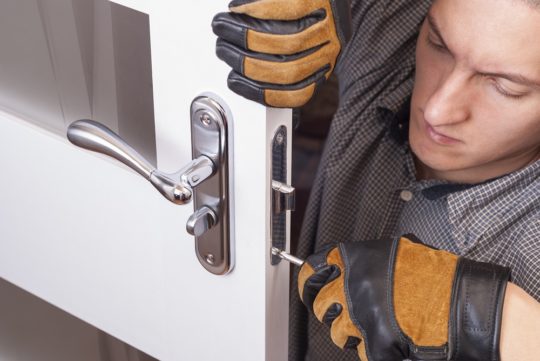Most people don’t even think about locksmiths until they need one. As locks have evolved, the profession requires more skill and ingenuity than ever before.
Locksmithing Is an Ancient Profession
The first locksmiths might have worked in ancient Babylon and Egypt 4,000 years in the past. Many people think the only locks in existence were small and portable, like ones used on treasure chests. However, ancient societies used large, heavy locks to protect valuables and homes. The first locks were made of wood with huge wooden keys.
In Rome, aristocrats and the very wealthy locked their valuables away and wore their keys as status symbols. Locks have also been discovered at sites in Greece and China.
It wasn’t until the late 1700s that metal locks became standardized. In 1779, Robert Barron patented a double-acting tumbler lock. In the next several years, inventors scrambled to create a lock that couldn’t be picked. Locksmiths first developed their skills to challenge inventor’s claims. They developed locks, replicated keys, and worked for security companies designing safes.
It Requires Extensive Training
When people hire a locksmith to help them gain access to locked vehicles or re-key their homes, they sometimes feel nervous giving a stranger that type of access. Before becoming a locksmith, individuals undergo extensive training that doesn’t just impart knowledge, it screens them for trustworthiness. When you hire a certified locksmith, you can trust that individual to behave ethically, even though they can break open practically any lock in existence.
Becoming a locksmith requires completing a training program and an apprenticeship. Aspiring professionals must have formal training that usually involves certification through a community college, vocational school, or state association.
Students learn how to repair locks, make keys, analyze complex locking mechanisms, and test security of locks once they’re installed. Many states require locksmiths to complete an apprenticeship of at least one year before they receive their certifications or licenses.
Licensing also involves passing a background check and submitting fingerprints to governing agencies. Most locksmiths choose to take continuing education to stay up to date on laws and technology. Many also become members of professional locksmith organizations.
Locksmiths Work Undercover
Locksmiths don’t just work during business hours, some of them receive calls in the dead of night to assist law enforcement. When police officers need to access a facility because they suspect criminal activity, they often call a locksmith. There are even forensic locksmiths who act as an investigator to help identify entry methods and security system weaknesses.
If the criminal destroyed locks, safes, or doors to enter, the locksmith is usually responsible for repair. If a burglar used lock picking or other covert techniques, law enforcement relies on locksmiths to find the weakness in the system and figure out how to fix it. Sometimes the most skillful criminals use sophisticated tools, and it isn’t clear how they gained access, but a trained locksmith can usually find the answer.
One fact locksmiths know that most people don’t is that just because a door has a lock doesn’t mean it’s safe. Contractors install deadbolts improperly, and the big box stores sell locks that are easily picked. If you’re concerned about your home’s security, The Safe Depot can help. Contact us to find out more.

